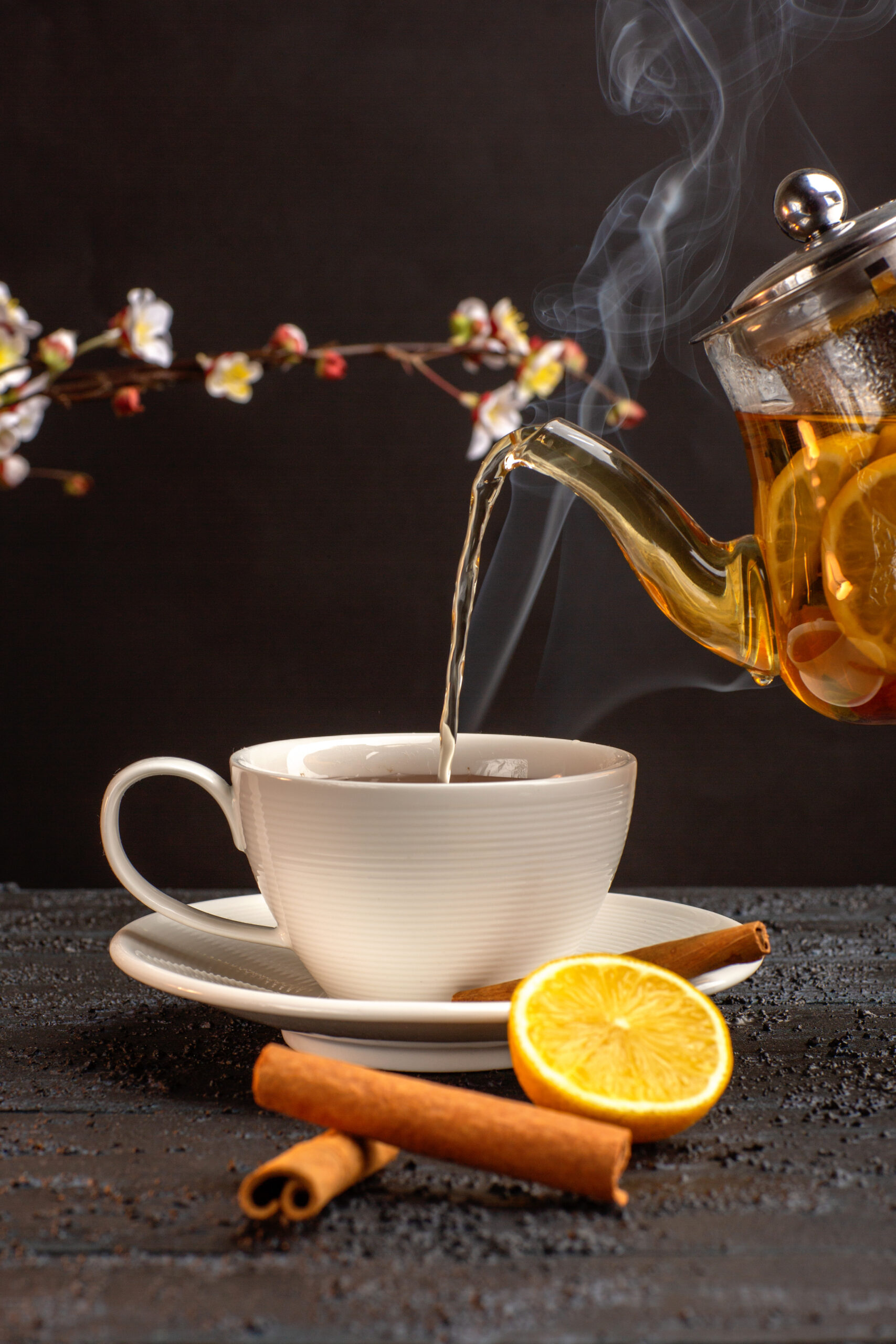Herbal teas, an age-old elixir, have surged in popularity for their intriguing flavors and reputed health benefits. As we delve into this aromatic world, we’ll discover a tapestry of tastes and wellness advantages, where each sip tells a story.
The Rich History of Herbal Teas
Herbal teas’ roots extend deep into the annals of history, with ancient civilizations globally embracing them for wellness. In China, the ritual of herbal tea drinking dates back to the Shang dynasty, where it was revered not just for its healing properties but also as a symbol of hospitality and culture. Egypt, too, was ahead of its time, utilizing teas made from herbs like chamomile and mint for their therapeutic benefits, even recording their use in medical texts like the Ebers Papyrus. This rich history imbues each cup of herbal tea we enjoy today with centuries of tradition and knowledge. Isn’t it fascinating to think of the countless generations that have sipped these same brews for health and comfort?
Understanding Herbal Tea Ingredients
In the world of herbal teas, each ingredient is not just a flavor component; it’s a piece of a larger wellness puzzle. Chamomile, for instance, has been a bedtime staple for millennia, prized for its gentle sedative effects. Peppermint, with its invigorating scent and flavor, isn’t just a palate cleanser – it’s a digestive aid used by the Greeks and Romans. And then there’s ginger, a root with a spicy kick, known to aid in digestion and combat nausea. These herbs are more than just ingredients; they’re natural remedies passed down through generations, each bringing its unique character to the tea blend.
The Art of Blending Herbal Teas
Blending herbal teas is a delicate art, much like a perfumer blending scents. It’s about creating a tapestry of flavors where each herb contributes to a harmonious whole. Master blenders pay close attention to the flavor profile, therapeutic properties, and even the aesthetics of the herbs they choose. They consider factors like the temperature at which each herb releases its optimal flavors and how the flavors evolve over time. This meticulous attention to detail ensures that every sip of your herbal tea is a perfectly balanced bouquet of flavors and wellness benefits.
Exploring Unique Herbal Tea Varieties
Beyond the familiar realms of chamomile and ginger lies an exotic world of herbal teas waiting to be explored. Have you savored the aromatic complexity of rooibos, a South African herb with a sweet, earthy profile? Or experienced the soothing qualities of lavender tea, with its delicate floral notes? Each unique herb offers a distinct flavor profile and health benefits, from the antioxidant-rich rooibos to the stress-relieving lavender. These teas invite us on a flavorful journey around the globe, each cup a new discovery in the vast world of herbal teas.
Cannabis in Herbal Teas: A Deep Dive
Cannabis in herbal teas presents an intriguing new chapter in the long history of herbal remedies. The infusion of cannabis, particularly CBD, offers a non-intoxicating experience that complements traditional herbal tea benefits. CBD, known for its potential to alleviate anxiety and improve sleep, can subtly enhance the calming effects of a nighttime tea blend. Meanwhile, THC, the compound responsible for cannabis’s psychoactive effects, can be used in controlled amounts to add a different dimension to the tea-drinking experience. This careful integration of cannabis into herbal teas marks a modern evolution in the ancient practice of herbal remedies.
In regions where it’s legal, growing cannabis for personal use opens up a new world of herbal tea possibilities. The choice of cannabis seeds is crucial – different strains offer different flavors, aromas, and cannabinoid profiles. Cultivating your own cannabis plants allows for complete control over the growing process, ensuring a clean and pure product for your tea blends. This process of nurturing and harvesting your own herbs adds a deeply personal touch to the tea-making experience, connecting you to the age-old tradition of growing and using medicinal plants.
Creating your own cannabis-infused tea blends is an exercise in creativity and moderation. The key is to balance the distinctive flavors and properties of cannabis with other herbs, creating a blend that is harmonious and effective. Start with familiar herbs, adding a small amount of cannabis to understand how its flavor and effects integrate with the blend. As with any culinary creation, personalization is essential – adjust the proportions to find the blend that resonates with your palate and wellness needs.
Brewing the Perfect Cup of Herbal Tea
Mastering the art of brewing herbal tea is a journey of discovery and finesse. It’s not just about throwing herbs into hot water; it’s about understanding and respecting the delicate nature of each ingredient. The water temperature, for instance, is critical. Too hot, and you risk burning the herbs, leading to a bitter taste; too cool, and you’ll fail to extract the full range of flavors and therapeutic compounds. The ideal temperature varies from one herb to another – chamomile and lavender, for example, thrive in slightly cooler water, while robust herbs like ginger demand hotter conditions.
The quality of the herbs is equally vital. Fresh, high-quality herbs yield a richer, more nuanced flavor profile and a higher concentration of beneficial compounds. Consider sourcing organic herbs or growing your own to ensure the best quality. When it comes to cannabis-infused teas, the quality and strain of the cannabis used will significantly impact the final brew’s flavor and effect. Each strain has its unique characteristics, and selecting the right one to complement your herbal blend is an art in itself.
Steeping time is the final, crucial factor. Each herb has its sweet spot – a specific duration for which it should steep to release its full flavor and therapeutic benefits without becoming overpowering. For example, delicate herbs like peppermint may require only a few minutes, while heartier herbs like hibiscus might need longer. Cannabis, particularly when used in teas, requires a careful balance. Steeping it for too long or too short a time can drastically alter the effectiveness and taste of your tea.
Remember, brewing herbal tea, especially when incorporating cannabis, is not a one-size-fits-all process. It’s a personal journey that invites experimentation and adjustment. Each brewing session is a chance to learn more about the herbs you’re using, how they interact with each other, and what combinations and techniques yield the best results for your palate and well-being. As you refine your brewing skills, you’ll develop a deeper connection with the ancient tradition of herbal teas, appreciating each cup not just for its taste but for the rich history and knowledge it represents.
Conclusion
The world of herbal teas is a journey of discovery. Whether you’re steeping a classic chamomile or venturing into cannabis-infused blends, each cup offers a unique experience. Why not start this exploration today and see where it takes you?























